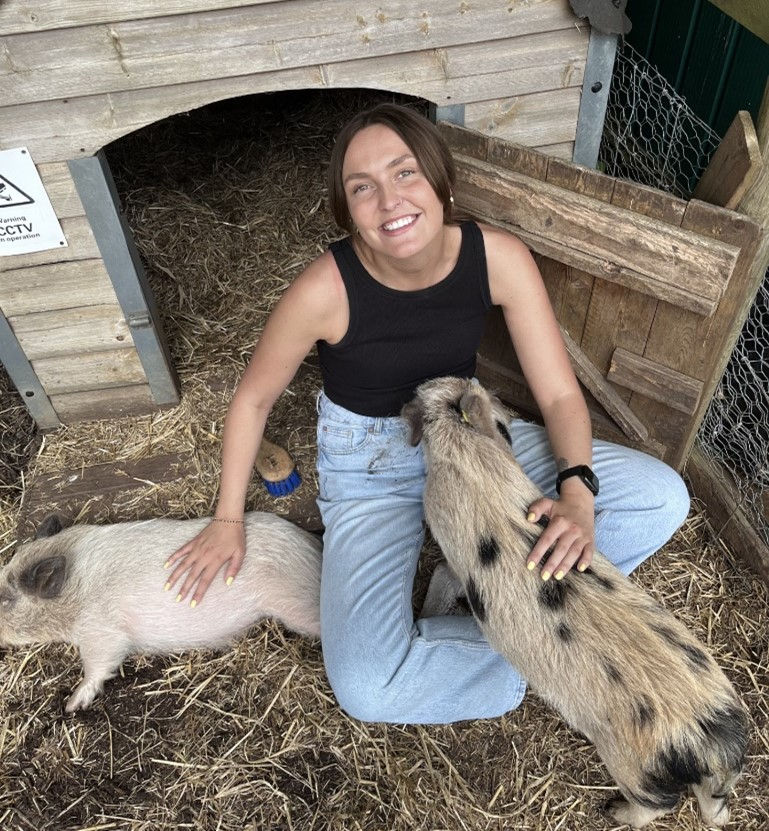ELSEC Programme - Primary School Visit from Minister Catherine McKinnell
- nickburr30
- May 23, 2025
- 3 min read
Minister for School Standards, Catherine McKinnell visited Hasmonean primary school in Barnet, which has been part of the ELSEC programme since January, and observed a small group intervention in one of the school’s calming environments. The activity focused on developing children’s social communication skills by engaging the children’s attention, promoting interaction and vocabulary, and making learning and communication fun. The intervention utilised a creative approach called ‘bucket time’ – where different items are pulled out of a bucket, such as a torch or bouncy ball, and are used to help the children understand the connection between actions and concepts. Over time, the pupils begin to recognise that when they see the bouncy ball, that means the associated word and action is to ‘squeeze’.
BELS own Victor Roman (Director of the Change Partnership Programme London Region) and Kim Miller (Interim Director of SEND and Inclusion) were part of the visit. ELSEC is part of the DfE Change Partnership Programme, which Barnet are the Regional Lead for London.
Minister for School Standards, Catherine McKinnell said:
“When challenges with speech and language go unnoticed, it can have a devastating impact on children’s attainment, attendance, social abilities and future life chances.
ELSEC is turning this around for so many pupils – and particularly those with SEND - helping them find their voice and thrive at school and with their friends and family.
This type of approach is exactly what we want to see in a reformed SEND system that delivers the support children need at the earliest stage and restores parents’ trust in a system which has let them down for too long.”
Jemma Brahams, Year one class teacher at Hasmonean Primary School said:
“The ELSEC team first trained me on how to utilise ‘bucket time’ for our pupils who are experiencing speech and language delays. The team was there to help me from the start and was always available as I got used to implementing the approach.
“The training provided on these interventions has been huge for us, as we now don’t need to wait for anyone to come into the school or go on any waiting lists – we can just take it forward straightaway. In fact, I’m now able to train other staff members in the school to deliver ‘bucket time’, so we can have it running frequently and across different year groups.
“The impact on our pupils’ development has been really positive too. As the activity is creative and interactive, it supports the childrens’ speech and language development, concentration and attention – we’ve seen so much progress.”
Georgia Roskin, Clinical Coordinator in Barnet’s ELSEC team said:
“Our model is that we don’t want any child to be missed.
“It can be very easy to point out children with significant needs but the children with mild-moderate needs often get missed, which can sadly cause long-term speech and language difficulties, and poorer outcomes. That’s why when we first partner with a setting, we screen every single child, which assures us (and parents!) that no children go undetected.
“We work intensively within a setting for six weeks, helping to identify pupils who may need support, while also upskilling the school staff on different interventions and teaching approaches they can adopt. We then stay in regular contact, coming back into the setting every couple of months to see how they’re getting on and address any new concerns.”
Victor Roman, London CPP Director said:
“It was a pleasure to host minister McKinnell at Hasmonean Primary School to showcase the fantastic work Barnet ELSEC is doing, as part of the London Change Partnership Programme. It is so important that innovative interventions such as ELSEC are recognised as part of the continuum of support for our children and young people.”










Comments